Unlocking Efficiency: How Magnetic Filtration Reduces Industrial Maintenance
In today's fast-paced industrial landscape, maintaining the optimal performance of high value machinery is crucial for productivity and profitability. However, maintenance comes with its own challenges, including unexpected equipment failures outside of the planned maintenance schedule, costly downtime, risk of worker injury and manual labour requirements. These issues not only disrupt operations but also drive up maintenance costs, impacting the bottom line.
Minimising maintenance downtime is particularly acute in precision metal cutting processes, where high value machine time, high volume output and high cost of workpiece rejects mean that downtime costs can quickly spiral.
Magnetic filtration offers a cutting-edge solution to these maintenance challenges. Powerful magnets are used to remove ferrous particles and other contaminants from fluids, providing an efficient and effective means of ensuring machinery operates smoothly and reliably.
This article delves into the world of magnetic filtration, exploring how this innovative technology can dramatically reduce maintenance requirements. We will discuss the principles behind magnetic filtration, its numerous benefits, and real-world applications across various industries.
By understanding and implementing magnetic filtration, businesses can achieve significant improvements in equipment longevity, operational efficiency, and cost savings.
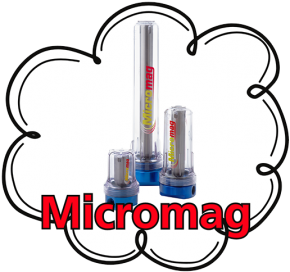 Understanding Magnetic Filtration
Understanding Magnetic Filtration
Magnetic filtration is a process that uses powerful magnets to capture and remove ferrous particles and other contaminants from industrial fluids. This technology can play a major role in maintaining the purity and efficiency of various metal finishing operations, and plays a crucial role in reducing maintenance needs and extending the lifespan of machinery.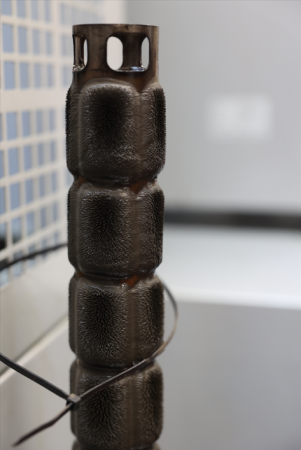
At its core, magnetic filtration operates on simple yet highly effective principles. Fluids such as oil, coolant, or water flow through a magnetic filter, where strong magnets attract and capture ferrous particles. These particles, which may include rust, wear debris, and other ferrous-based contaminants, are held by the magnetic field, preventing them from circulating further in the system.
As magnetic filtration does not rely on a porous barrier, it can remove even the finest ferrous particles, without running the risk of blockages or stripping vital additives from the fluids.
The filtration process can be broken down into the following steps:
- Fluid Entry: Contaminated fluid enters the magnetic filter housing.
- Magnetic Capture: As the fluid passes through the filter, magnetic elements attract and hold ferrous particles.
- Clean Fluid Exit: The now-clean fluid exits the filter, free from harmful metal contaminants.
There are two key types of magnetic filtration system: manual and automated. Manual and automated filtration systems each offer distinct advantages and cater to different operational needs.
Manual filtration systems rely on regular human intervention to monitor, clean, and replace filters, making them suitable for smaller operations or where the presence of personnel is constant. They are typically simpler and less costly to install and maintain, but the labour-intensive nature can lead to higher long-term operational costs and potential downtime during maintenance.
In contrast, automated filtration systems integrate advanced sensors, controls, and self-cleaning mechanisms to operate continuously with minimal human intervention. These systems are ideal for large-scale industrial applications where maintaining consistent filtration without interrupting operations is critical.
While the initial investment for automated systems is higher, the benefits of reduced labour costs, improved efficiency, and minimised downtime typically result in significant long-term savings and enhanced operational reliability.
Common Maintenance Challenges in Industrial Environments
Every industrial environment has challenges when it comes to maintenance, which can have an impact on productivity, efficiency and costs. These challenges often stem from the harsh operational conditions, complex machinery, demanding quality standards, and the high financial demands placed on equipment.
Here are some of the common maintenance challenges in industrial environments.
Wear and Tear on Machinery
Industrial machinery is often subjected to continuous use, leading to inevitable wear and tear. Components such as bearings, gears, cutting tools, grinding wheels, and hydraulic system pipework experience friction and stress, causing them to degrade over time. This damage can come from small metal particles within the fluid, which cause abrasive wear and friction damage. In turn, this can cause further metal contamination within the fluid.
When cutting fluids break down, it reduces their effectiveness and ability to protect the machine components from wear, heat and rust.
Dirt in coolant has an abrasive effect on the surface of the machine and glazing. It can also wear out components like pumps and valves, and also clog up fluid delivery channels.
This degradation not only reduces performance but also leads to frequent repairs and replacements being required, driving up maintenance costs and downtime.
Contamination in Fluids
Industrial processes often rely on various fluids, including oils, coolants, and industrial wash solutions, to lubricate, cool and clean machinery and machined components. These fluids can become contaminated with particles like fine metal swarf, dust, shavings, dirt, and rust.
The main purposes of machine tool fluids are to provide lubrication, cooling and wash away debris from the contact area.
Dirty coolant often leads to reduced heat dissipation, which can overheat components, leading to reduced precision and performance. Contaminated fluids compromise the efficiency of machinery, accelerate wear, and can lead to catastrophic equipment failure. Regular filtration is necessary to maintain fluid purity, but traditional filtration methods may not be sufficient to capture all contaminants due to limited particle size collection capability.
The downtime and cost associated with draining, replacing and disposing of contaminated fluids can also have a major impact on productivity and maintenance costs.
The magnetic contamination caught can be ferromagnetic, ferrimagnetic or paramagnetic. If the material has a magnetic susceptibility (a magnetic permeability) strong enough to allow it to be attracted to a magnet, capture of that magnetic contamination is achievable.
So, magnets not only capture mild steel and magnetic stainless particles from a fluid – they can also capture stainless steel particles (where the stainless steel has become paramagnetic from machining processes), nickel, tungsten carbide, iron oxide (‘rust’) and manganese.
Downtime Due to Equipment Failure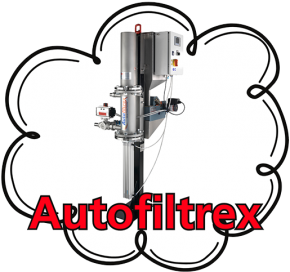
Unexpected equipment failures are a significant concern in precision metalworking. These failures often result in unplanned downtime, disrupting production schedules and leading to substantial financial losses.
The root causes of such failures are often linked to inadequate maintenance, wear and tear, and fluid contamination. Minimising downtime requires proactive maintenance strategies and effective filtration solutions to ensure machinery reliability.
High Maintenance Costs and Labour
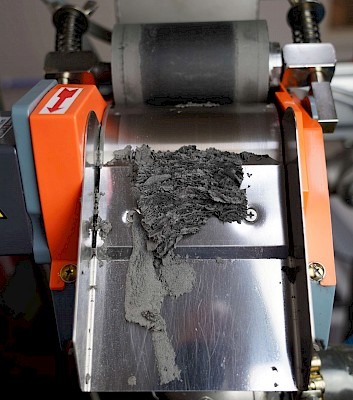 The cumulative costs of maintaining industrial equipment can be staggering. Regular maintenance involves not only the cost of replacement parts and consumables, but also labour expenses. Skilled technicians are needed to perform inspections, repairs, and part replacements. Additionally, the need for frequent maintenance can lead to high labour costs, especially if the maintenance tasks are labour-intensive and require significant downtime.
The cumulative costs of maintaining industrial equipment can be staggering. Regular maintenance involves not only the cost of replacement parts and consumables, but also labour expenses. Skilled technicians are needed to perform inspections, repairs, and part replacements. Additionally, the need for frequent maintenance can lead to high labour costs, especially if the maintenance tasks are labour-intensive and require significant downtime.
Addressing these common maintenance challenges is critical for industrial operations aiming to optimise efficiency and reduce costs. Magnetic filtration presents a viable solution by targeting the root causes of wear, contamination and equipment failure, enhancing the overall reliability and longevity of machinery.
Health and Environmental Hazards
Contaminated cutting fluids are susceptible to bacteria and fungi growth which poses health risks to workers and potential environmental issues during disposal.
Placement of Magnetic Filtration for Reducing Maintenance
Magnetic filtration systems compliment and aid existing filtration systems. They should be placed before any existing bag filters. By removing ferrous contamination before reaching a bag filter, the bag filter can be used for longer before it needs replacing, reducing downtime and landfill.
They are also often added before going to any spray systems to minimise the risks of the nozzles becoming clogged, allowing for better operation of such systems with reduced maintenance requirements.
Benefits of Magnetic Filtration in Reducing Maintenance
Magnetic filtration offers a range of benefits that significantly reduce maintenance requirements in industrial environments. By efficiently capturing contaminants and enhancing machinery performance, this innovative technology addresses several key maintenance challenges.
Efficient Contaminant Removal
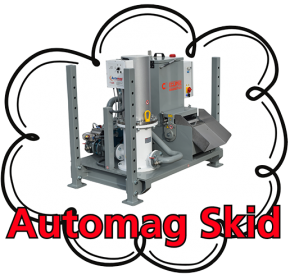 Magnetic filters excel at removing ferrous particles and other contaminants from industrial fluids. These filters contain powerful magnets which attract metallic particles, extracting them from the machine fluids. This results in cleaner fluids that maintain their effectiveness, reducing abrasive wear and tear on components.
Magnetic filters excel at removing ferrous particles and other contaminants from industrial fluids. These filters contain powerful magnets which attract metallic particles, extracting them from the machine fluids. This results in cleaner fluids that maintain their effectiveness, reducing abrasive wear and tear on components.
Examples of contaminants effectively removed by magnetic filters include metal shavings, rust, and fine wear debris, which are common in many industrial processes.
Unlike some traditional barrier type filters, magnetic filters do not strip natural additives, such as bacterial inhibitor, from industrial fluids. This helps ensure fluids remain effective for longer.
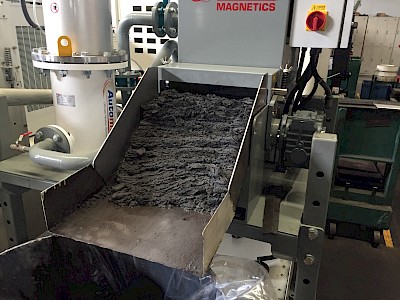
Prolonged Equipment Life
By keeping fluids free of harmful contaminants, magnetic filtration helps extend the life of machinery. Clean fluids reduce friction and wear on moving parts, leading to fewer breakdowns and longer intervals between maintenance tasks. This prolongs the lifespan of critical components such as pumps, valves, drills, metal cutting tools, bearings, gears, and hydraulic systems.
Decreased Downtime
One of the most compelling benefits of magnetic filtration is its ability to minimise unplanned downtime. With fewer contaminants circulating in the system, the likelihood of equipment failures are greatly reduced. This translates to more consistent and reliable operations, with fewer interruptions for emergency maintenance.
Cost Savings
Magnetic filtration contributes to substantial cost savings across various facets of maintenance. By reducing the frequency of part replacements and repairs, companies can lower their maintenance budgets. Additionally, clean fluids enhance the efficiency of machinery, leading to energy savings and reduced operational costs. Over time, the investment in magnetic filtration pays off through a reduced risk of unplanned downtime, decreased labour costs, fewer consumables, fewer product rejects and overall more efficient operations.
The magnets are not consumables – they can be quickly cleaned and put back into operation. Automated magnetic filtration versions will even do this cleaning for you, allowing the removed contamination to be set aside for recycling opportunities.
Environmental Benefits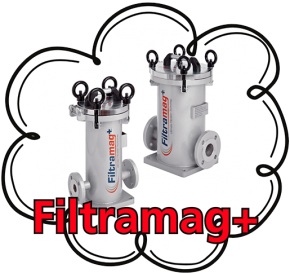
Implementing magnetic filtration also offers environmental advantages, helping to reduce your carbon footprint. By maintaining fluid cleanliness, the need for chemical treatments and frequent fluid changes is reduced, resulting in less waste. This not only lowers the environmental impact but also aligns with sustainability goals.
Furthermore, magnetic filters can be cleaned and reused, reducing the consumption of disposable filters and contributing to greener industrial practices. Any captured contamination can also be returned for recycling.
In Summary
Magnetic filtration offers a robust solution to the many maintenance challenges faced by industrial operations. Its ability to maintain fluid purity, protect machinery, and enhance operational efficiency translates to significant improvements in productivity and cost savings.
For industries seeking to optimise their maintenance strategies and achieve greater reliability, magnetic filtration is a powerful and effective tool. Embracing this technology not only reduces maintenance requirements but also contributes to more sustainable and efficient industrial practices.
As companies continue to strive for operational excellence, magnetic filtration stands out as a key component in achieving long-term success and sustainability.


 UK
UK